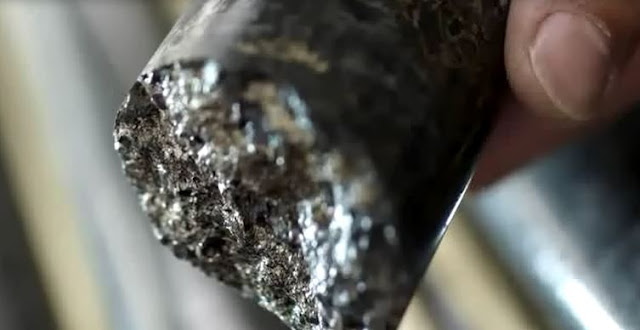Examples of exciting from International Precious Metals Institute ( IPMI ) how to refine precious metals with the initial steps of engineering concentration, using chemical engineering mineral engineering metallurgical, industrial engineering geology, geosciences, organic, inorganic, health, safety and many others.
Precious metals produced from primary sources start off as or once the ore is removed from the mine it must be processed to separate the valuable content from the surrounding rock and minerals to extract the metals from the ore.
Ore with low concentrations of metal take more energy and work to concentrate and refine. concentrations of precious metals in or can be very low, yet still be profitable to mines due to high value platinum concentrations in or can contain as little as two and a half grams per ton, that is the equivalent of 2 to 3 grams of precious metals in a million grams of surrounding Rock.
The task of separating the Platinum from the rest of the material is a multi-step process using a variety of separation techniques. Mineral engineering is the discipline that utilizes technology to concentrate or the techniques used in mineral engineering have formed the foundation of all refining and recycling processes. This is true for precious metals recycling from automotive catalysts to the separation and recycling of metals glass and plastics from household trash.
The differences in physical properties of materials being separated are used to separate them. for example a mixture of magnetic and non-magnetic particles can be separated using large magnets within separating tumblers. In every case the material must first be broken apart into small enough particles to enable them be separated.
Crushing and grinding of the first step to break down more the amount of energy used, to accomplish this is significant so technology has been refined to optimize the process or its first blasted from rock, and then the large boulders get crushed for easy transport and handling by trucks and conveyors.
Crushing and grinding of the first step to break down more the amount of energy used, to accomplish this is significant so technology has been refined to optimize the process or its first blasted from rock, and then the large boulders get crushed for easy transport and handling by trucks and conveyors.
The ore is then taken through various types of crushing and grinding equipment until it is almost in a fine powder form. The rock size distribution and hardness are matched to the type of equipment used impact crushers roll crushers home pressures and grinding Mills progressively reduce the particle size massive grinding or ball mills contain large hard spheres which roll and tumble to grind the ore particles between their services. Technology has been developed to monitor variations in the incoming orb properties and modify the crushing techniques to improve efficiency.
Once the metal bearing or has been crushed and then ground the precious metal bearing material must be separated from the rest of the material. A standard and widely used process called flotation separates particles based on their tendency to attach to frothing bubbles. precious metals can be found within ores metallic particles or contained in formations of oxides or sulphides.
Once the metal bearing or has been crushed and then ground the precious metal bearing material must be separated from the rest of the material. A standard and widely used process called flotation separates particles based on their tendency to attach to frothing bubbles. precious metals can be found within ores metallic particles or contained in formations of oxides or sulphides.
When the valuable content of the ore is in one form like sulfide the surface chemistry properties may differ from the surrounding material in the ore which will allow Flotation to be used to separate them the ore is mixed with water and small quantities of chemicals are added to help the separation a very small amount of wetting agent is first mixed in to selectively coat the desired particles.
This treatment alters the surface chemistry of some material and improves attraction and adherence to the bubbles in the froth, the pH of the slurry may also be monitored and adjusted to control the surface chemistry, the next chemical addition is the frothing agent which is a type of soap which will create thick bubbles that can hold on to the selected particles.
Internal impellers spin at high speeds to draw in air and create fine bubbles these bubbles swirl and rise to the top collecting the particles along the way, this is similar to and can be thought of as a cleaning, action much the same way dirt and stains are cleaned from clothing.
A stain remover may first be sprayed on to treat the fine particles in the stain and then the detergents in the wash lifted up and out. The bubbles then overflow to separate and concentrate the metal bearing particles. Prior to the next concentrating steps a series of flotation cells are typically used in which the froth from one cell cascades into the next cell for further concentration.
Once ores are concentrated additional technologies are used depending on the metals being processed as well as the other materials being removed. hydrometallurgy and pyrometallurgy are the next disciplines within the realm of mineral engineering which are next employed to concentrate the precious metals from the ore.
Hydrometallurgy involves the technologies which chemically dissolve or leach to eventually extract metals. pyrometallurgy involves melting or other thermal treatment of ores to concentrate or extract metals.
Video International Precious Metals Institute ( IPMI ) Refine Precious Metals - Step Concentration
See Also :
Video How To Refine Precious Metals - Hydrometallurgy

















